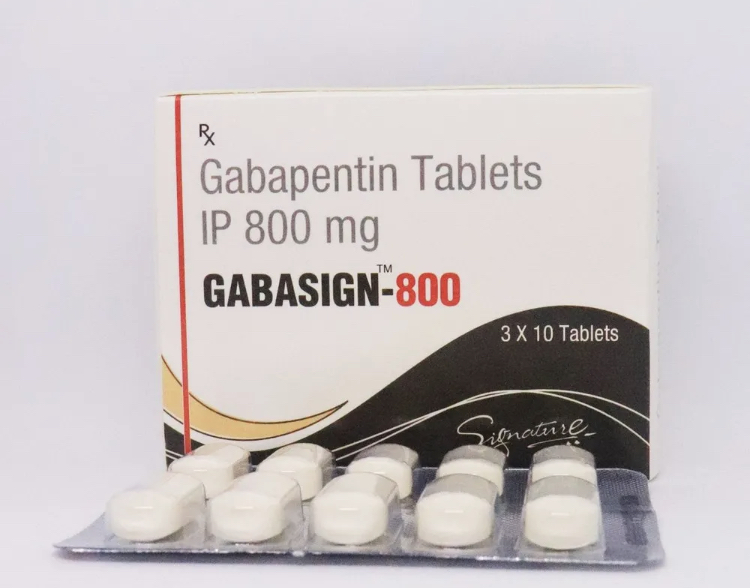Gabapentin is a medication for the treatment of nerve pain and epilepsy. Also known by the popular brand name Neurontin, gabapentin provides relief from nerve pain associated with conditions such as diabetes and shingles.
What Is Gabapentin Used For?
Increasing evidence has emerged suggesting that gabapentin is not as benign as once thought. The treatment has been on an upward spiral with statistics showing a significant increase in script numbers. The tablet is widely used in the UK for both approved and off-label indications and is often considered an opioid therapy alternative.
This is mainly because it has anti-seizure, anti-anxiety, sedative, and analgesic properties that can safely treat conditions with neurological origins and varying severity levels. With concerns for safety mounting when it comes to multiple treatment use, patients find that gabapentin tablets are the ideal solution to their ailments.
> Pain relief reviews show that patients who use gabapentin for pain achieve successful results in short time frames
> Menopausal symptoms such as night-time hot flushes and chronic vaginal or pelvic pain
> Periodic limb movement disorder, burning mouth syndrome
> Uremic pruritus in liver failure
> Benign essential tremors
> Alcohol/cannabis withdrawal
> Headaches after a concussion
> Migraines
> Itchy skin
> Anxiety – studies show that patients who use gabapentin for anxiety, more specifically, social phobia, can regain mental and physical capabilities negatively affected by the disorder
> Gabapentin Benefits:
> Benefits of a medication refer to the helpful effects it produces. This can vary from one medication to another, as some treatments have more benefits than others. An example of a treatment that has multiple benefits is undoubtedly gabapentin.
> These benefits include:
> The tablet is equipped for long or short-term treatment plans
> The treatment is available in various strengths of 100, 300, 400, 600, and 800 mg, which is beneficial in treating conditions that require unique consideration
> The medication is widely accessible and available online
> It has a high clinical efficacy paired with an impressive safety profile which can accommodate various underlying health complications
> The pill can be safely used in conjunction with other treatments, allowing patients to manage multiple conditions simultaneously
> The medication does not have substantial addictive power as it shows limited or no ‘rewarding’ effects (this is distinct from the benefits it does yield)
> This treatment is well tolerated by all patients, including the elderly and patients with complex health issues or compromised immune systems
> Whether patients use gabapentin for pain or other conditions, its’ ability to provide effective relief far surpasses various other popular treatments on the market.
> Gabapentin Dosage:
Dosage is a vital part of treating any condition as it guarantees a patient’s safety and paves the way for successful results. Patients are urged to follow recommended gabapentin dosage practices diligently, to ensure recovery rather than relapse or adverse effects.
> Gabapentin dosage for chronic pain stemming from nerve or muscle damage
> -Day 1: A single 300 mg tablet must be taken once a day
> -Day 2: A single 300 mg tablet must be taken twice a day
> -Day 3: A single 300 mg tablet must be taken twice daily
> If further pain relief is needed, the dose can be up-titrated to 600 mg or two gabapentin 300 mg tablets. This doses must be consumed twice daily for the prescribed duration without exceeding a maximum daily dosage of 1800 mg. These doses also apply to patients using gabapentin for nerve pain or acute pain, with the only difference being shorter treatment durations.
> Psychiatric disorders, anxiety or sleep
> Patients who anticipate using this tablet for these conditions must seek medical advice or ensure they stick to advised dosages, as doses are prescribed according to the condition’s severity.
> Gabapentin Side Effects:
> Gabapentin painkiller medication has helped millions of patients worldwide manage disorders that cause physical and psychological stress. Benefits such as these are sometimes interlinked with adverse effects. However, these effects are not as debilitating as some people may think – in fact, they are short-lived and highly tolerable.
> Common gabapentin side effects could include:
> Dizziness or double vision
> Fatigue, nystagmus (involuntary eye movement)
> Sleepiness, tremors, unsteadiness
> Nausea
> Sweating
> Patients are encouraged to take note of the possible reasons why side effects may occur before they buy gabapentin.











Reviews
There are no reviews yet.